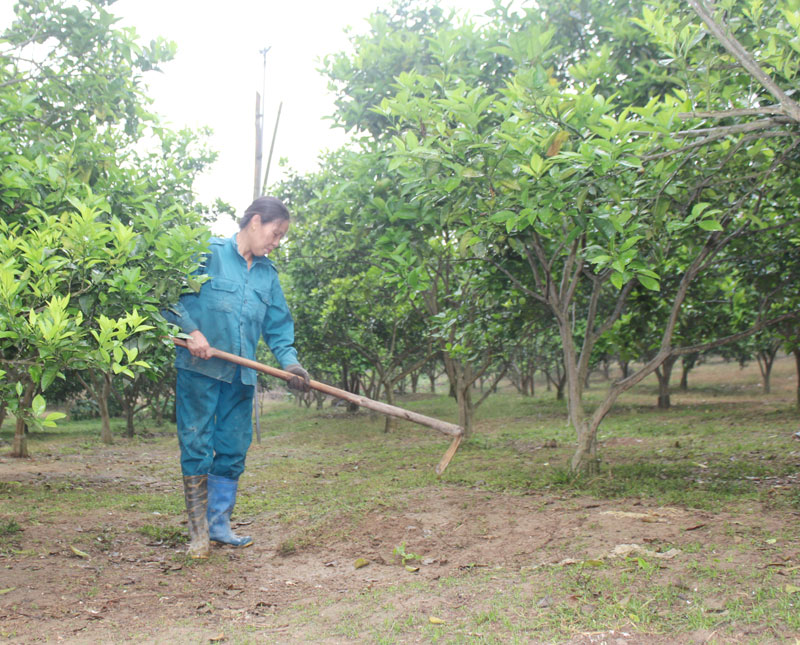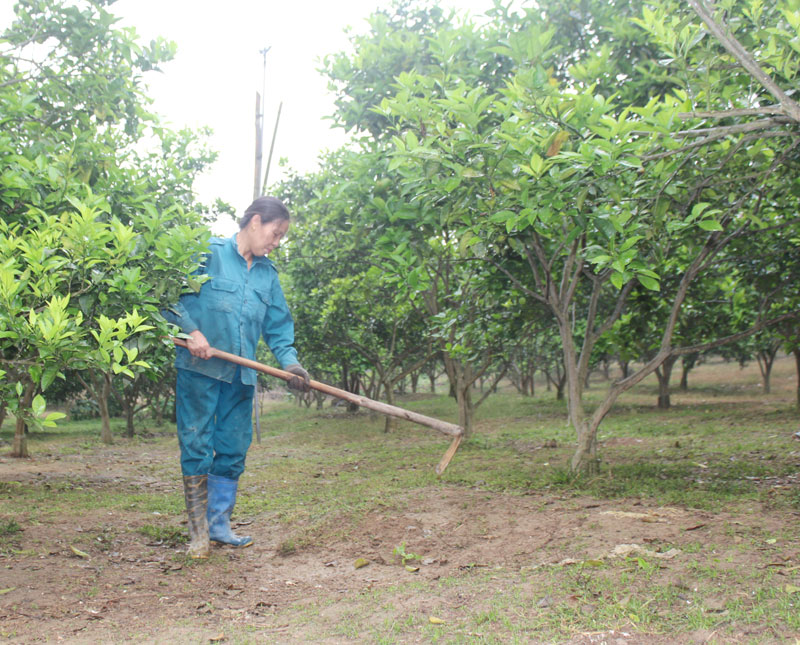
(HBO) – As of the end of 2019, 88 out of the 191 communes in Hoa Binh were recognised as new-style rural areas, up 25 compared to the previous year.
 Locals in Phu Thanh
commune, Lac Thuy district, plant citrus trees in their home gardens that bring
high economic efficiency.
Locals in Phu Thanh
commune, Lac Thuy district, plant citrus trees in their home gardens that bring
high economic efficiency.
Vice Chairman of the provincial People’s Committee Nguyen
Van Dung said the local living standards have been improved in recent years
thanks to the close leadership and guidance of local authorities, particularly
efforts of ethnic groups to get out of poverty and build new-style rural areas.
Besides the State’s support, locals have contributed
resources to implement the programme effectively. They donated working days,
land, goods and cash worth over 366 billion VND.
The provincial People’s Committee has issued specific plans
to carry out the drive, along with a number of mechanisms and policies to
attract and mobilise investment for communes to complete targets of building
new rural areas.
Localities in the province have mobilised over 48.2 billion
VND from other programmes and projects to implement 200 production development
models. Many have built plans to develop small-and medium-sized production models
connecting households and businesses to generate jobs and increase incomes for
locals. As a result, in 2019, the per capita income in rural areas increased to
about 32 million VND. The rate of poor households was reduced to 11.36 percent.
As a result, 103 out of the total 191 communes have met the criterion on the
household poverty rate, up 14 communes from 2018./.
According to data from the Hoa Binh Provincial Party Committee, the industrial production index for the first six months of 2025 is estimated to have increased by 20% compared to the same period last year. This marks the highest year-on-year growth rate for this period since 2020.
In the first six months of 2025, Hoa Binh province’s export turnover was estimated at 1.145 billion USD, marking an 18.11% increase compared to the same period in 2024. Import turnover was estimated at $ 804 million, a 17.15% increase, which helped the province maintain a positive trade balance.
The lives of the ethnic minority farmers in Tan Lac district have gradually improved thanks to the new directions in agricultural production. This is a testament to the collective strength fostered through the professional associations and groups implemented by various levels of the district’s Farmers’ Union.
With the motto the "product quality comes first,” after nearly one year of establishment and operation, Muong village’s Clean Food Agricultural and Commercial Cooperative, located in Cau Hamlet, Hung Son Commune (Kim Boi district), has launched reputable, high-quality agricultural products to the market that are well-received by consumers. The products such as Muong village’s pork sausage, salt-cured chicken, and salt-cured pork hocks have gradually carved out a place in the market and they are on the path to obtaining the OCOP certification.
In the past, the phrase "bumper harvest, rock-bottom prices" was a familiar refrain for Vietnamese farmers engaged in fragmented, small-scale agriculture. But today, a new spirit is emerging across rural areas of Hoa Binh province - one of collaboration, organisation, and collective economic models that provide a stable foundation for production.
Maintaining growing area codes and packing facility codes in accordance with regulations is a mandatory requirement for agricultural products to be eligible for export. Recently, the Department of Agriculture and Environment of Hoa Binh province has intensified technical supervision of designated farming areas and packing facilities to safeguard the "green passport" that enables its products to access international markets.



 Locals in Phu Thanh
commune, Lac Thuy district, plant citrus trees in their home gardens that bring
high economic efficiency.
Locals in Phu Thanh
commune, Lac Thuy district, plant citrus trees in their home gardens that bring
high economic efficiency.